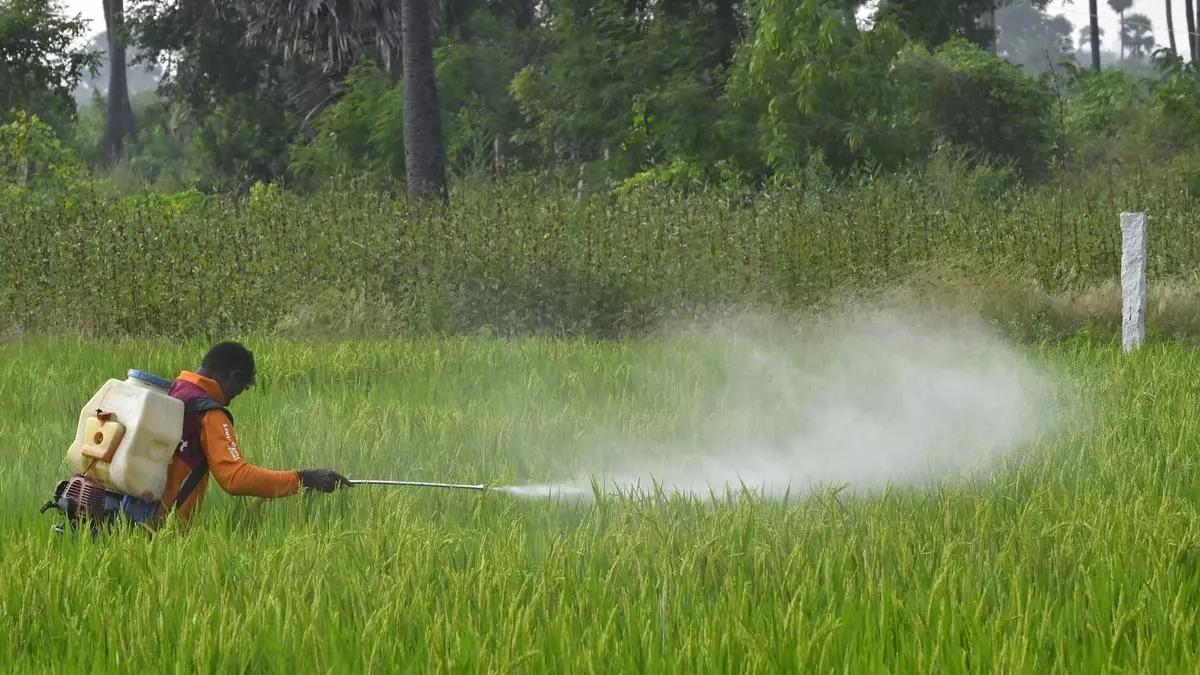Farmers require comprehensive crop insurance scheme: Agri economist
Agricultural economist and Tata Institute of Social Sciences (TISS) Professor R Ramkumar called for a comprehensive overhaul of the country’s crop insurance scheme, which should extend beyond crop losses to include income risks.
Stating that settlement rates were very low, he called for the induction of public insurance companies into the flagship Prime Minister Fasal Bima Yojana scheme to help increase the coverage and settlements.
He also called for improved infrastructure, such as rain gauges in villages, to enable accurate assessments of crop damages at the village level. He said the present scheme – the Prime Minister Fasal Bima Yojana – was not equipped to tackle the challenges posed by climate change.
A key concern raised was the growing financial burden on State governments, whose share of premium payments is increasing while the Central government’s contribution is declining. This has forced several States to leave the scheme and design their own schemes.
Ramkumar, a Professor with the Centre for Study of Developing Economics at TISS, was addressing a gathering of farmers on ‘Climate change and the requirement of a crop, farmer insurance scheme’ on Saturday. The seminar was organised by Telangana Rythu Sangham and Aribandi Foundation to mark the decennial anniversary of its magazine ‘Chaitanya Sedyam’.
Professor Ramkumar traced the evolution of crop insurance schemes in India, pointing out the shortcomings of previous initiatives and the ongoing challenges with PMFBY, including low coverage and declining participation. He cited data from the PMFBY website, indicating a decrease in both the number of insured farmers and the insured area.
He said the reporting of calamities and concerns was not easy in the present scheme. “The time to report the events is not sufficient for farmers. Also, the redressal mechanism is also farmer-friendly,” he said.
The PMFBY continued the tradition of mandatory coverage of loanee farmers while only theoretically covering non-loanee farmers.
Climate change impact
Stating that climate change was having adverse effects on farm output and incomes, he called for the development of crop varieties that were more resistant to the adverse impacts of climate change, such as droughts, floods, salinity, and acidity.
- Also read: Milma chairman bats for sustainable practices in dairy sector, scaling up exports at Paris meet
He also wanted the governments to focus on irrigation and watershed development. This would ensure the availability of irrigation for agriculture even during off-seasons.
Climate change adaptation strategies should also factor in social security schemes.
He said the existing crop insurance schemes mainly cover yield risks, neglecting other significant risks in agriculture, such as price-related risks. He argues for a comprehensive crop insurance scheme that also addresses price fluctuations, potentially through mechanisms like price stabilisation funds. This would protect farmers from income loss caused by price drops, he pointed out.
